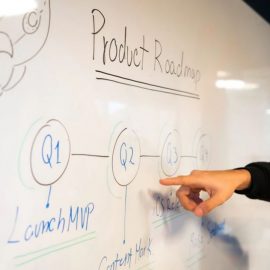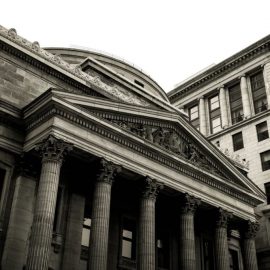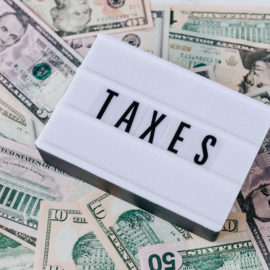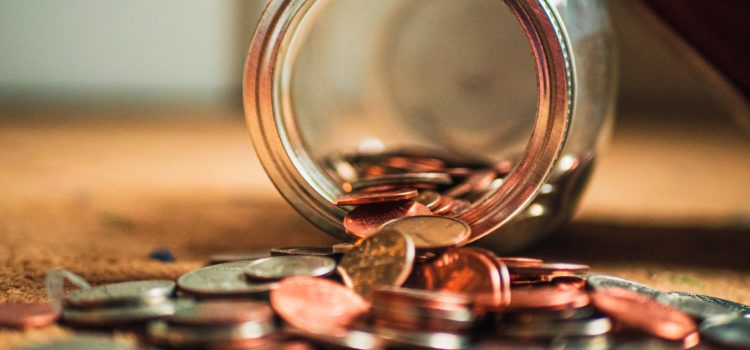
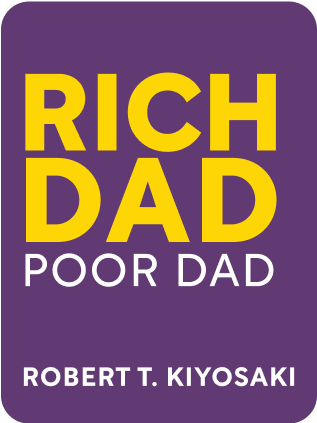
This article is an excerpt from the Shortform summary of "Rich Dad Poor Dad" by Robert T. Kiyosaki. Shortform has the world's best summaries of books you should be reading.
Like this article? Sign up for a free trial here .
What is the advice of rich dad vs poor dad in Robert Kiyosaki’s book? whose advice should you take?
The advice of Rich Dad vs Poor Dad is, of course, very different. The fundamental beliefs and practical advice of rich dad vs. poor dad can help you figure out the right course of action.
Rich Dad and Poor Dad
Growing up in Hawaii in the 1950s, Robert Kiyosaki had two dads. These are the differences between rich dad vs poor dad:
- Poor Dad: His biological dad, who was well educated (Stanford grad, PhD from Northwestern) but had the traditional mindset: work hard, get a stable job, and be financially conservative. The family did fine, but never made it to financial independence and left little to their kids.
- Rich Dad: His friend Mike’s dad, who didn’t graduate from high school and had his own financial ups and downs, but eventually built a local business empire and employed thousands. (believed to be Richard Kimi)
You can see the difference of poor dad vs rich dad cleearly.
Robert Kiyosaki got conflicting advice from rich dad vs poor dad on how to manage money, career, and financial risk. Ultimately he saw more wisdom and results in Rich Dad’s advice, and followed in the Rich Dad’s path.
While Robert Kiyosaki might really have had two dads, the more important point is that rich dad vs poor dad are a parable for two types of financial thinking.
- The Poor Dad represents the standard consensus view on work and money – go to school, get a good job and climb the ladder, prize stability over independence, buy a house, and spend money without a clear long-term plan.
- The traditional schooling system trains this style of thinking. (Plus, employers have the incentive to keep workers thinking this).
- Most parents belong to this system, so they pass it down to their kids.
- The Rich Dad represents what was then a more contrarian view – work for salary if you have to, but aim for financial independence; have your money generate more money; and take calculated risks boldly.
The poor dad vs rich dad traditional view worked better in the 20th century, when strong growth and decades-long employment meant stability was a viable strategy. Nowadays, pensions are rarely guaranteed; job security at a loyal employer is rare; professional education and academic success are no longer guarantees for security. This is one of the fundamental difference of rich dad vs poor dad.
But the traditional thinking is still common. Rich Dad, Poor Dad aims to shake readers out of their current passive path and taking a proactive strategy to building wealth and working for their best interest. Figure out what to do with money once you earn it, learn how to keep people from taking it from you, and make the money work for you.
Rich Dad, Poor Dad explores differences between the two dads on a few levels. The differences in poor dad vs rich dad are explained.
- Mindset: how responsible each felt for financial literacy and proactively making good financial decisions
- Strategy: how they allocated their income among assets and liabilities, how they perceived risk
- Tactics: how they set up their income to lower taxes, what investments they make
What Rich Dad and Poor Dad Say
Rich Dad vs Poor Dad look at the world differently. Here are quotes and perspectives taken from throughout Rich Dad, Poor Dad that exemplify their different mindsets and approaches to wealth.
| Poor Dad | Rich Dad |
| Be employed by a company. Climb up the corporate ladder. | Own the company. Own the corporate ladder. |
| Be a smart person. | Hire smart people. |
| I can’t afford it. (passive surrender) | How can I afford it? (active engagement) |
| The reason we’re not rich is because of you kids. (blaming others for lack of wealth) | The reason I must be rich is because I have you kids. |
| Play it safe. Don’t take financial risks. | Risk is good when controlled. Learn to manage risk. |
| Our home is our largest investment and our greatest asset. | Our home is a liability and shouldn’t be our largest investment. |
| Find a good job. | Create jobs. |
| Work for money. | Money works for me. |
| Security is most important. | Learning is most important. |
| I’ll never be rich, no matter what I do. | No matter how much money I have, I am always a rich man. There’s a difference between being broke and being poor – broke is a temporary state; poor is a permanent mindset. |
| Money doesn’t matter. (This is often self-deception to avoid confronting the pain of not having enough money.) | Money is power. Money does matter, whether you like it or not. Learn how money works, and you gain power over it. |
| Greed is bad. | Use greed to make your life and other people’s lives better. |
| I’ve worked hard, and I’m entitled to benefits. | Be self-reliant. Entitlements are weakening and cause financial dependence. |
| The fear of losing is greater than the excitement of winning. Play it safe. (Die a boring person, knowing you didn’t go for it.) | Control your fear. Don’t let it make you a slave to money. |
| More money will solve my problems. I’m in debt. How do I make more money? | For most people, lack of financial education is the major problem. If you give people more money without changing their financial strategy, the money will just disappear. The problem is how to spend the money you do get. Rework the cashflow pattern first before getting more money. |
| I need more money, so I’m going to get a job/get a promotion/go back to school and get a raise/get a second job. | Let’s think carefully. Is a job the best solution to this over the long run? How do I make income beyond just earning a higher salary? |
| (To another person) Congratulations! You got a good job with a solid employer. | A job isn’t as great as you think it is. Who are you selling your time to? Who are you making rich? |
| Borrow money to get what you want. | Focus on creating money first. Then buy things with the excess money that your money generates. |
So what is the difference between rich dad vs poor dad? You can see above that rich dad vs poor dad have very different ideas on how to make money, and what money means.

———End of Preview———
Like what you just read? Read the rest of the world's best summary of Robert T. Kiyosaki's "Rich Dad Poor Dad" at Shortform .
Here's what you'll find in our full Rich Dad Poor Dad summary :
- The key differences in how rich dad and poor dad approached life
- Why it's a terrible idea to buy an expensive house
- How to overcome your own mental blocks to become wealthy for life


